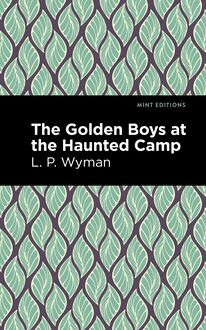-
 Univers
Univers
-
 Ebooks
Ebooks
-
 Livres audio
Livres audio
-
 Presse
Presse
-
 Podcasts
Podcasts
-
 BD
BD
-
 Documents
Documents
-
- Cours
- Révisions
- Ressources pédagogiques
- Sciences de l’éducation
- Manuels scolaires
- Langues
- Travaux de classe
- Annales de BEP
- Etudes supérieures
- Maternelle et primaire
- Fiches de lecture
- Orientation scolaire
- Méthodologie
- Corrigés de devoir
- Annales d’examens et concours
- Annales du bac
- Annales du brevet
- Rapports de stage
La lecture à portée de main
Vous pourrez modifier la taille du texte de cet ouvrage
Découvre YouScribe en t'inscrivant gratuitement
Je m'inscrisDécouvre YouScribe en t'inscrivant gratuitement
Je m'inscrisEn savoir plus
Vous pourrez modifier la taille du texte de cet ouvrage
En savoir plus

Description
Doctor Dolittle’s Post Office (1920) is a children’s fantasy novel by Hugh Lofting. The novel is the third in a series of fifteen books featuring Doctor Dolittle, a character created by Lofting in letters written to his wife and children at home while he served in the Great War. Beloved by generations of adults and children for their imaginative nature and moral worldview, Lofting’s books have inspired numerous adaptations for theater, film, and television.
Doctor John Dolittle is an ordinary physician with an extraordinary gift. Renowned for his ability to communicate with animals, Dolittle has made a name for himself as a traveling veterinarian with a generous heart and a courageous spirit. On the West Coast of Africa, he finds himself enlisted to help rescue the captives on an illegal slave ship, earning him the respect of the people of Fantippo. There, he befriends King Koko, who encourages him to open the small kingdom’s first postal service, allowing them to communicate with distant continents using thousands of migratory birds. Told in episodic fashion, and with each episode containing wilder and more wonderful adventures than the next, Lofting’s novel features a lost island filled with prehistoric beasts, the invention of an alphabet for animals, and a tortoise who has been alive since before the Great Flood. Doctor Dolittle’s Post Office is a delightful work of fantasy for children and adults alike.
With a beautifully designed cover and professionally typeset manuscript, this edition of Hugh Lofting’s Doctor Dolittle’s Post Office is a classic of English children’s fiction reimagined for modern readers.
Sujets
Informations
| Publié par | Mint Editions |
| Date de parution | 02 mars 2021 |
| Nombre de lectures | 0 |
| EAN13 | 9781513274591 |
| Langue | English |
| Poids de l'ouvrage | 4 Mo |
Informations légales : prix de location à la page 0,0500€. Cette information est donnée uniquement à titre indicatif conformément à la législation en vigueur.
Extrait
Doctor Dolittle’s Post Office
Hugh Lofting
Doctor Dolittle’s Post Office was first published in 1923.
This edition published by Mint Editions 2021.
ISBN 9781513269597 | E-ISBN 9781513274591
Published by Mint Editions®
minteditionbooks.com
Publishing Director: Jennifer Newens
Design & Production: Rachel Lopez Metzger
Project Manager: Micaela Clark
Typesetting: Westchester Publishing Services
C ONTENTS P ROLOGUE P ART I I. Z UZANA II. T HE D OCTOR’S R ECEPTION ON THE W ARSHIP III. A G REAT G UNNER IV. T HE R OYAL M AILS OF F ANTIPPO V. T HE V OYAGE D ELAYED VI. N O -M AN’S -L AND VII. T HE A NIMALS’ P ARADISE VIII. T HE S WIFTEST M AIL IN THE W ORLD P ART II I. A M OST U NUSUAL P OST O FFICE II. C HEAPSIDE III. T HE B IRDS T HAT H ELPED C OLUMBUS IV. C APE S TEPHEN L IGHT V. G ULLS AND S HIPS VI. W EATHER B UREAUS VII. T EACHING BY M AIL P ART III I. T HE A NIMALS’ M AGAZINE II. T HE D OCTOR’S S TORY III. G UB -G UB’S S TORY IV. D AB -D AB’S S TORY V. T HE W HITE M OUSE’S S TORY VI. J IP’S S TORY VII. T OO -T OO’S S TORY VIII. T HE P USHMI -P ULLYU’S S TORY P ART IV I. P ARCEL P OST II. T HE G REAT M AIL R OBBERY III. P EARLS AND B RUSSELS S PROUTS IV. P EARL D IVERS V. O BOMBO’S R EBELLION VI. T HE D OCTOR’S R ELEASE VII. A M YSTERIOUS L ETTER VIII. T HE L AND OF THE M ANGROVE S WAMPS IX. T HE S ECRET L AKE X. T HE P OSTMASTER G ENERAL’S L AST O RDER XI. G OOD -B YE TO F ANTIPPO
P ROLOGUE
Nearly all of the history of Doctor Dolittle’s post office took place when he was returning from a voyage to West Africa. Therefore I will begin (as soon as I have told you a little about how he came to take the journey) from where he turned his ship towards home again and set sail for Puddleby-on-the-Marsh.
Some time before this the pushmi-pullyu, after a long stay in England, had grown a little homesick for Africa. And although he was tremendously fond of the Doctor and never wanted to leave him altogether, he asked him one winter day when the weather was particularly cold and disagreeable if he would mind running down to Africa for a holiday—just for a week or two.
The Doctor readily agreed because he hadn’t been on a voyage in a long while and he felt he too needed a change from the chilly December days of England.
So he started off. Besides the pushmi-pullyu he took Dab-Dab the duck, Jip the dog, Gub-Gub the pig, Too-Too the owl, and the white mouse—the same good company he had had with him on his adventurous return from the Land of the Monkeys. For this trip the Doctor bought a little sailing boat—very old and battered and worn, but a good sound craft for bad weather.
They sailed away down to the south coast of the Bight of Benin. There they visited many African kingdoms and strange tribes. And while they were ashore the pushmi-pullyu had a chance to wander freely through his old grazing grounds. And he enjoyed his holiday thoroughly.
One morning the Doctor was delighted to see his old friends the swallows gathering once more about his ship at anchor for their yearly flight to England. They asked him whether he too was returning; because if so, they said, they would accompany him, the same as they had done when he was escaping from the Kingdom of Jolliginki.
As the pushmi-pullyu was now quite ready to leave, the Doctor thanked the swallows and told them he would be delighted to have their company. Then for the remainder of that day all was hustle and hurry and bustle, getting the ship provisioned and making preparations for the long trip back to England.
By the following morning everything was in readiness to put to sea. The anchor was drawn up and with all sail set the Doctor’s ship moved northward before a favorable wind. And it is from this point that my story begins.
PART I
I
Z UZANA
One morning in the first week of the return voyage when John Dolittle and his animals were all sitting at breakfast round the big table in the cabin, one of the swallows came down and said that he wanted to speak to the Doctor.
John Dolittle at once left the table and went out into the passage where he found the swallow-leader himself, a very neat, trim, little bird with long, long wings and sharp, snappy, black eyes. Speedy-the-Skimmer he was called—a name truly famous throughout the whole of the feathered world. He was the champion flycatcher and aerial acrobat of Europe, Africa, Asia, and America. For years every summer he had won all the flying races, having broken his own record only last year by crossing the Atlantic in eleven and a half hours—at a speed of over two hundred miles an hour.
“Well, Speedy,” said John Dolittle. “What is it?”
“Doctor,” said the little bird in a mysterious whisper, “we have sighted a canoe about a mile ahead of the ship and a little to the eastward, with only a black woman in it. She is weeping bitterly and isn’t paddling the canoe at all. She is several miles from land—ten, at least, I should say—because at the moment we are crossing the Bay of Fantippo and can only just see the shore of Africa. She is really in dangerous straits, with such a little bit of a boat that far out at sea. But she doesn’t seem to care. She’s just sitting in the bottom of the canoe, crying as if she didn’t mind what happens to her. I wish you would come and speak to her, for we fear she is in great trouble.”
“All right,” said the Doctor. “Fly slowly on to where the canoe is and I will steer the ship to follow you.”
So John Dolittle went up on deck and by steering the boat after the guiding swallows he presently saw a small, dark canoe rising and falling on the waves. It looked so tiny on the wide face of the waters that it could be taken for a log or a stick—or, indeed, missed altogether, unless you were close enough to see it. In the canoe sat a woman with her head bowed down upon her knees.
“What’s the matter?” shouted the Doctor, as soon as he was near enough to make the woman hear. “Why have you come so far from the land? Don’t you know that you are in great danger if a storm should come up?”
Slowly the woman raised her head.
“Go away,” said she, “and leave me to my sorrow. Haven’t you white men done me enough harm?”
John Dolittle steered the boat up closer still and continued to talk to the woman in a kindly way. But she seemed for a long time to mistrust him because he was a white man. Little by little, however, the Doctor won her confidence and at last, still weeping bitterly, she told him her story.
T HESE WERE THE DAYS , YOU must understand, when slavery was being done away with. To capture, to buy or to sell slaves had, in fact, been strictly forbidden by most governments. But certain bad men still came down to the west coast of Africa and captured or bought slaves secretly and took them away in ships to other lands to work on cotton and tobacco plantations. Some African kings sold prisoners they had taken in war to these men and made a great deal of money that way.
Well, this woman in the canoe belonged to a tribe which had been at war with the king of Fantippo—an African kingdom situated on the coast near which the swallows had seen the canoe.
And in this war the King of Fantippo had taken many prisoners, among whom was the woman’s husband. Shortly after the war was over some white men in a ship had called at the Kingdom of Fantippo to see if they could buy slaves for tobacco plantations. And when the king heard how much money they were willing to give for black slaves he thought he would sell them the prisoners he had taken in the war.
This woman’s name was Zuzana and her husband was a very strong and fine-looking man. The King of Fantippo would have kept Zuzana’s husband for this reason, because he liked to have strong men at his court. But the slave traders also wanted strong men, for they could do a lot of work on the plantations. And they offered the King of Fantippo a specially high price for Zuzana’s husband. And the king had sold him.
Zuzana described to the Doctor how she had followed the white man’s ship a long way out in a canoe, imploring them to give her back her husband. But they had only laughed at her and gone on their way. And their ship had soon passed out of sight.
That was why, she said, she hated all white men and had not wanted to speak to the Doctor when he had hailed her canoe.
The Doctor was dreadfully angry when he had heard the story. And he asked Zuzana how long ago was it that the slaver’s ship bearing her husband had left.
She told him it was half an hour ago. Without her husband, she said, life meant nothing to her, and when the ship had passed from view, going northward along the coast, she had burst into tears and just let the canoe drift, not even having the heart to paddle back to land.
The Doctor told the woman that no matter what it cost he was going to help her. And he was all for speeding up his ship and going in chase of the slave boat right away. But Dab-Dab the duck warned him that his boat was very slow and that its sails could be easily seen by the slavers, who would never allow it to come near them.
So the Doctor put down his anchor and, leaving the ship where it was, got into the woman’s canoe. Then, calling to the swallows to help him as guides, he set off northward along the coast, looking into all the bays and behind all the islands for the slave ship which had taken Zuzana’s husband.
B UT AFTER MANY HOURS OF fruitless search night began to come on and the swallows who were acting as guides could no longer see big distances, for there was no moon.
Poor Zuzana began weeping some more when the Doctor said he would have to give up for the night.
“By morning,” said she, “the ship of the wicked slave dealers will be many miles away and I shall never get my husband back. Alas! Alas!”
The Doctor comforted her as best he could, saying that if he failed he would get her another husband, just as good. But she didn’t seem to care for that idea and went on wailing, “Alas! Alas!”
She made such a noise that
-
 Univers
Univers
-
 Ebooks
Ebooks
-
 Livres audio
Livres audio
-
 Presse
Presse
-
 Podcasts
Podcasts
-
 BD
BD
-
 Documents
Documents
-
Jeunesse
-
Littérature
-
Ressources professionnelles
-
Santé et bien-être
-
Savoirs
-
Education
-
Loisirs et hobbies
-
Art, musique et cinéma
-
Actualité et débat de société
-
Jeunesse
-
Littérature
-
Ressources professionnelles
-
Santé et bien-être
-
Savoirs
-
Education
-
Loisirs et hobbies
-
Art, musique et cinéma
-
Actualité et débat de société
-
Actualités
-
Lifestyle
-
Presse jeunesse
-
Presse professionnelle
-
Pratique
-
Presse sportive
-
Presse internationale
-
Culture & Médias
-
Action et Aventures
-
Science-fiction et Fantasy
-
Société
-
Jeunesse
-
Littérature
-
Ressources professionnelles
-
Santé et bien-être
-
Savoirs
-
Education
-
Loisirs et hobbies
-
Art, musique et cinéma
-
Actualité et débat de société
- Cours
- Révisions
- Ressources pédagogiques
- Sciences de l’éducation
- Manuels scolaires
- Langues
- Travaux de classe
- Annales de BEP
- Etudes supérieures
- Maternelle et primaire
- Fiches de lecture
- Orientation scolaire
- Méthodologie
- Corrigés de devoir
- Annales d’examens et concours
- Annales du bac
- Annales du brevet
- Rapports de stage




















